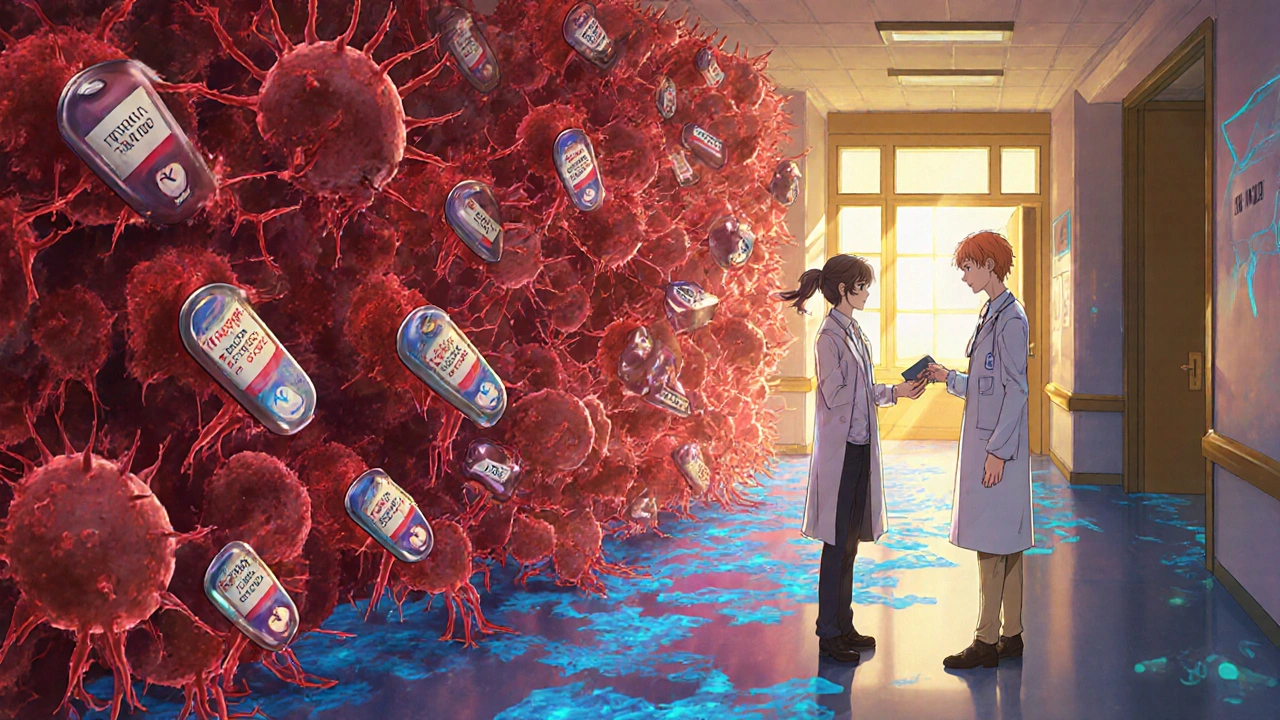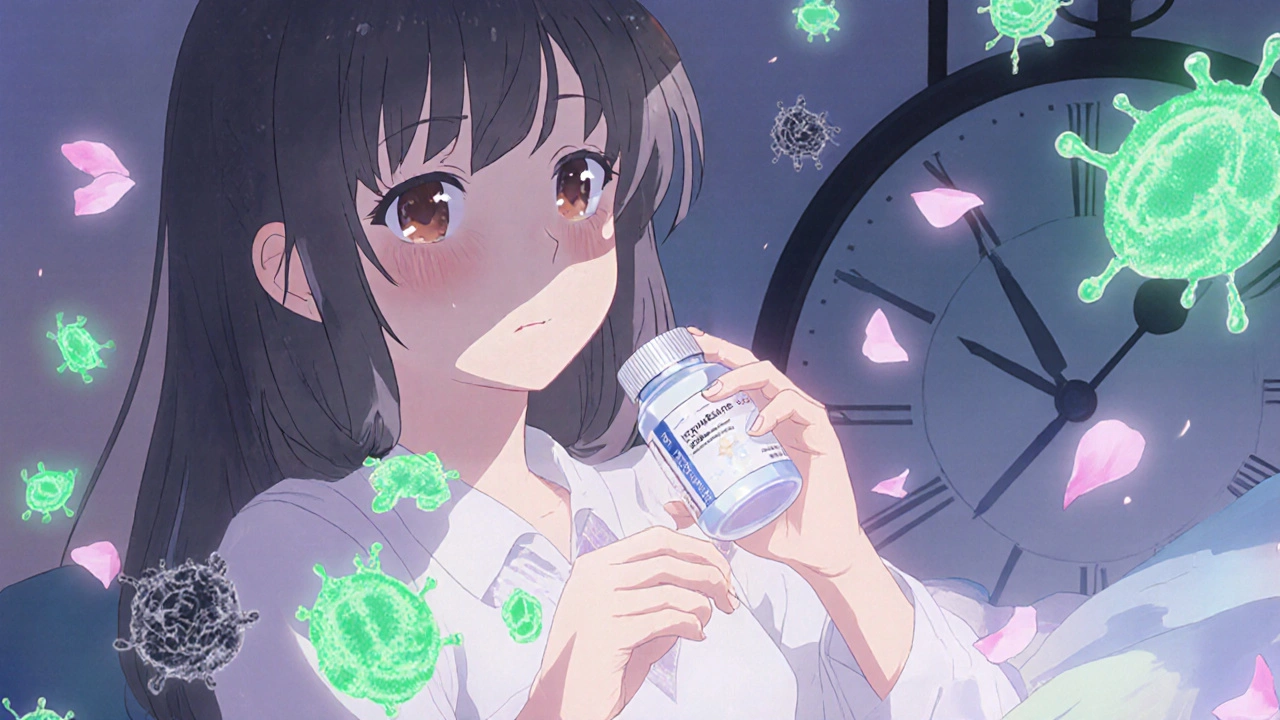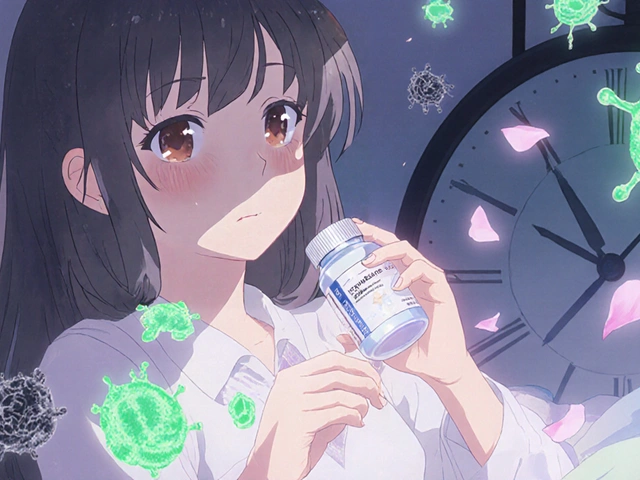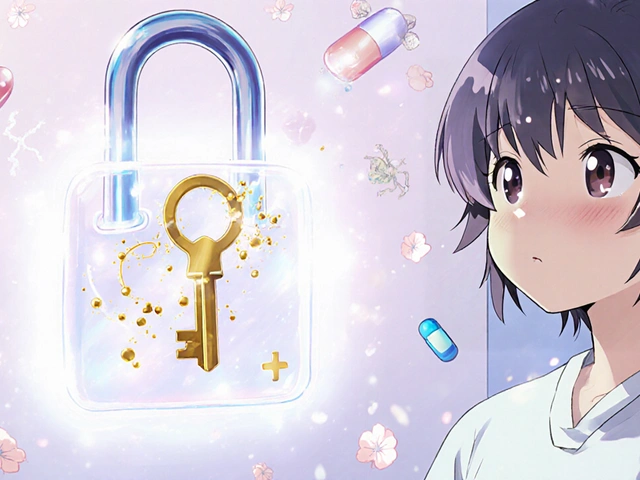Every year, millions of people in the U.S. take doxycycline for acne, Lyme disease, or respiratory infections. It’s cheap, effective, and often handed out like candy-especially online or from leftover prescriptions. But what most people don’t realize is that misusing or overusing doxycycline isn’t just a bad habit. It’s a slow-burning fire that’s already damaging public health.
What Happens When You Take Doxycycline Without a Real Infection?
Doxycycline is a tetracycline antibiotic. It doesn’t treat viruses, allergies, or random rashes. Yet, people pop it because they feel "a little sick," or because a friend said it helped their acne. Some even buy it online without a prescription, thinking it’s harmless. But antibiotics like doxycycline don’t just kill bad bacteria-they wipe out the good ones too.
Your gut has trillions of bacteria that help digest food, make vitamins, and keep your immune system balanced. When you take doxycycline unnecessarily, you’re not just targeting the infection you think you have. You’re wiping out entire ecosystems inside you. The result? Diarrhea, yeast infections, bloating, and even long-term digestive issues that can last months after stopping the drug.
Antibiotic Resistance Isn’t a Future Threat-It’s Here Right Now
The biggest danger of misusing doxycycline? Creating superbugs. Every time you take it when you don’t need it, you give bacteria a chance to adapt. They learn to survive the drug. Then they pass that resistance to other bacteria. In 2024, the CDC reported that over 30% of Staphylococcus aureus strains in U.S. hospitals were resistant to tetracycline-class antibiotics, including doxycycline. That’s not a small number-it’s a warning.
Imagine getting a simple skin infection and your doctor has no effective antibiotic left. That’s not science fiction. It’s happening now. In Pittsburgh, a 2023 study at UPMC found that 22% of patients with recurrent urinary tract infections had strains resistant to doxycycline. These aren’t rare cases. They’re becoming the norm.
Why Doxycycline Is So Often Misused
There are three big reasons people reach for doxycycline too often.
- It’s prescribed too easily. Dermatologists give it for mild acne without trying topical treatments first. Primary care doctors hand it out for "sinus infections" that are actually viral.
- It’s cheap and available. A 30-day supply costs under $15 at many pharmacies. Online pharmacies sell it without prescriptions, often with fake labels.
- People think it’s "safe." Unlike stronger antibiotics, doxycycline doesn’t usually cause immediate, scary side effects-so users assume it’s harmless. That’s dangerously wrong.
One patient I spoke with took doxycycline for six months straight because her acne didn’t clear up in two weeks. She didn’t know she was increasing her risk of liver damage, sun sensitivity, and permanent gut microbiome disruption-all for a cosmetic issue that could’ve been managed with retinoids or dietary changes.

Side Effects You’re Not Being Told About
Most people know doxycycline can cause stomach upset or sunburn. But the real risks go deeper.
- Esophageal irritation: Taking it lying down or without enough water can cause severe burns in your throat. In 2022, the FDA issued a safety alert after 17 cases of esophageal ulcers linked to improper use.
- Liver toxicity: Long-term use can raise liver enzymes, leading to jaundice or liver damage-especially in people over 50 or those with existing liver conditions.
- Photosensitivity: Your skin becomes so sensitive to UV light that even a 10-minute walk can cause second-degree burns. Many people don’t realize this until they’re in the ER.
- Impact on children and teens: Doxycycline can permanently stain developing teeth in kids under 8. It’s also been linked to bone growth delays in adolescents taking it for prolonged acne treatment.
And here’s the kicker: many of these side effects show up weeks or months after stopping the drug. You think you’re fine-until your skin starts peeling in the sun or your stomach won’t stop aching.
What to Do Instead of Reaching for Doxycycline
You don’t need antibiotics for every sniffle, pimple, or bug bite. Here’s what actually works:
- For acne: Start with benzoyl peroxide, adapalene, or azelaic acid. If those fail, see a dermatologist. Doxycycline should be a last resort, not a first step.
- For sinus or cold symptoms: Rest, hydration, and saline rinses work better than antibiotics. Most are viral and clear up in 7-10 days.
- For tick bites: Only take doxycycline if you live in a high-risk Lyme area, the tick was attached for over 36 hours, and you can get it within 72 hours of removal. Don’t take it "just in case."
- For UTIs: Nitrofurantoin or fosfomycin are first-line treatments. Doxycycline isn’t recommended unless culture results confirm it’s the right choice.
Ask your doctor: "Is this infection bacterial?" If they can’t answer that clearly, push back. Antibiotics aren’t a cure-all-they’re precision tools. Using them like a sledgehammer makes them useless when you really need them.

What Happens If You’ve Already Overused It?
If you’ve taken doxycycline multiple times in the past year, you’re not doomed-but you should take action.
- Get a stool test. Companies like Viome or Thryve offer at-home microbiome tests that show how much good bacteria you’ve lost.
- Start probiotics. Look for strains like Lactobacillus rhamnosus and Bifidobacterium longum. Studies show they help restore gut balance after antibiotics.
- Limit sun exposure. Even after stopping doxycycline, your skin can stay sensitive for weeks. Use SPF 50+ daily for at least a month.
- Don’t save leftovers. Never keep antibiotics for "next time." Expired or unused doxycycline can lose potency or become toxic. Return them to a pharmacy drop box.
One woman in Pittsburgh stopped taking doxycycline after three courses in a year. She started eating fermented foods, took a daily probiotic, and within six months, her digestive issues cleared up. Her skin improved too-not because of more antibiotics, but because her body finally healed.
How to Talk to Your Doctor About Doxycycline
Don’t be afraid to ask questions. You have the right to know why you’re being prescribed something.
- "Is this infection bacterial or viral?"
- "Are there non-antibiotic options I can try first?"
- "What are the risks if I take this unnecessarily?"
- "How long should I take it? Can I stop early if I feel better?"
Doctors aren’t perfect. Many are pressured by patients who demand antibiotics. But if you come prepared with questions, you’re more likely to get the right care-not just the fastest fix.
Final Thought: Antibiotics Are Not Candy
Doxycycline saved lives during World War II. It still does today-for the right infections. But when we treat it like a daily vitamin or a beauty aid, we’re gambling with the future of medicine. Every unnecessary pill you take adds another brick to the wall of antibiotic resistance.
Don’t take it because you’re scared. Don’t take it because it’s easy. Don’t take it because you think it’s safe.
Take it only when a trained medical professional confirms you need it-and take it exactly as directed.
Can doxycycline make your skin worse?
Yes. While doxycycline is often prescribed for acne, it can sometimes cause a condition called "pseudomembranous colitis" or trigger severe sunburns that look like acne flare-ups. It can also disrupt your gut microbiome, which directly affects skin health. Many people see their acne worsen after stopping doxycycline because their skin’s natural balance was destroyed.
How long does doxycycline stay in your system?
Doxycycline has a half-life of about 18-22 hours, meaning it takes roughly 5 days to fully clear your body. But its effects on your gut bacteria can last weeks or months. The antibiotic doesn’t linger, but the damage to your microbiome does.
Is it safe to drink alcohol while taking doxycycline?
Moderate alcohol doesn’t directly interfere with doxycycline’s effectiveness. But alcohol can worsen stomach upset, dehydrate you, and increase liver strain-both of which are already risks with doxycycline. It’s best to avoid alcohol while taking it, especially if you’re on it for more than a week.
Can doxycycline cause permanent damage?
In rare cases, yes. Long-term or repeated misuse can lead to permanent liver damage, chronic digestive issues from microbiome disruption, or irreversible tooth discoloration in children. Photosensitivity can also cause lasting sun damage to the skin if not managed properly.
What should I do if I accidentally took doxycycline when I didn’t need it?
Stop taking it immediately. Don’t panic-just one accidental dose won’t cause major harm. But if you’ve taken it multiple times without a confirmed bacterial infection, talk to your doctor. Consider getting a gut health test and starting a probiotic. Most importantly, never do it again.








Ravi Singhal November 1, 2025
man i took doxycycline last year for what i thought was a bad pimple and ended up with yeast infection and sunburned legs from walking to the mailbox
why does everyone think antibiotics are just vitamins now
Victoria Arnett November 1, 2025
my dermatologist gave me doxycycline for mild acne and i took it for 8 months because i was scared to stop
my gut has never been the same and my skin got worse after i quit
no one warned me about the microbiome thing
HALEY BERGSTROM-BORINS November 2, 2025
they’re hiding the truth 😱
Big Pharma knows antibiotics destroy your gut so they sell you probiotics on the side 🤑
and don’t get me started on how the FDA lets them sell it online without a prescription
it’s a controlled substance for a reason!!
they want you sick so you keep buying more pills 💊🩸
watch the documentary ‘Antibiotic Apocalypse’ on YouTube
Sharon M Delgado November 3, 2025
As someone who has spent years studying microbiology, I must say-this post is not just informative, it is vital, essential, and long overdue.
Every single point made here is supported by peer-reviewed literature, and yet, the public remains woefully misinformed.
Antibiotic stewardship is not a suggestion-it is a moral imperative.
And yes, the fact that doxycycline is available over the counter in some countries (and online in all of them) is a public health catastrophe waiting to explode.
Thank you for writing this.
Someone had to.
And I hope your voice echoes in every clinic, every pharmacy, every kitchen table where someone reaches for the bottle again.
Dr. Marie White November 5, 2025
I’m a family doctor and I see this every week.
People come in with a cold and say, ‘Can I just get the doxycycline you gave me last time?’
I explain it won’t help, they get upset.
They think I’m being difficult.
But I’m trying to save their future selves from a gut that never recovers, or a UTI that can’t be treated.
It’s heartbreaking.
And I’m not mad at them.
I’m mad at the system that makes this so easy.
Wendy Tharp November 5, 2025
Wow, another anti-antibiotic guilt trip.
People get sick, they want to feel better.
Why should they suffer because some ‘expert’ thinks they’re dumb?
My cousin took doxycycline for a rash and it cleared up in two days.
So what if her gut was upset?
She’s fine.
Meanwhile, I’ve got real problems-like my insurance not covering the expensive ‘first-line’ treatments you’re pushing.
Stop judging people who just want to get through the day.
Subham Das November 5, 2025
Ah, the modern plague of pharmaceutical pragmatism-where the body is reduced to a bacterial battlefield and the soul is ignored in favor of pharmacological quick fixes.
Do we not see the metaphysical cost of this chemical assault?
Our microbiome is not merely a collection of microbes-it is the silent orchestra of our being, the forgotten choir of ancestral wisdom.
By taking doxycycline for acne, we are not treating a skin condition-we are committing ontological violence against the inner ecosystem that has co-evolved with us since the Paleolithic.
And who profits?
Not the patient.
Not the healer.
But the corporate entity that monetizes ignorance and sells hope as a pill.
Wake up, my friends-antibiotics are not tools of healing, they are instruments of alienation from the natural order.
Cori Azbill November 6, 2025
USA is the only country that lets you buy antibiotics like candy
other countries? You need a prescription, a doctor’s signature, and a blood test
we’re weak.
we’re lazy.
we think medicine is a right, not a privilege earned through responsibility
and now we’re paying for it with superbugs
stop being entitled and start being smart
or move to Canada and stop whining
Paul Orozco November 7, 2025
Why is this even a conversation?
People take antibiotics like candy because they’re dumb.
Doctors give them out because they’re overworked.
Pharmacies sell them because they’re cheap.
It’s a perfect storm of laziness and ignorance.
And now we’re all paying the price.
But hey, at least we got our acne cleared up for a few months, right?
So what if we can’t treat a simple infection in 10 years?
It’s not like anyone’s going to remember this post anyway.
Bobby Marshall November 9, 2025
I took doxycycline for a bad case of acne and thought I was being smart.
Turned out, I just wrecked my gut.
After six months of bloating and fatigue, I started eating kimchi, sauerkraut, and kefir every day.
Added a probiotic with L. rhamnosus and B. longum-like the post said.
And guess what?
My skin cleared up even more than when I was on the drug.
Not because I took more antibiotics.
But because I finally let my body heal.
It’s wild how often the answer isn’t more medicine-it’s less.
Thanks for the reminder.
And hey-if you’ve taken it too much, don’t panic.
Your gut remembers how to be healthy.
You just gotta give it a chance.